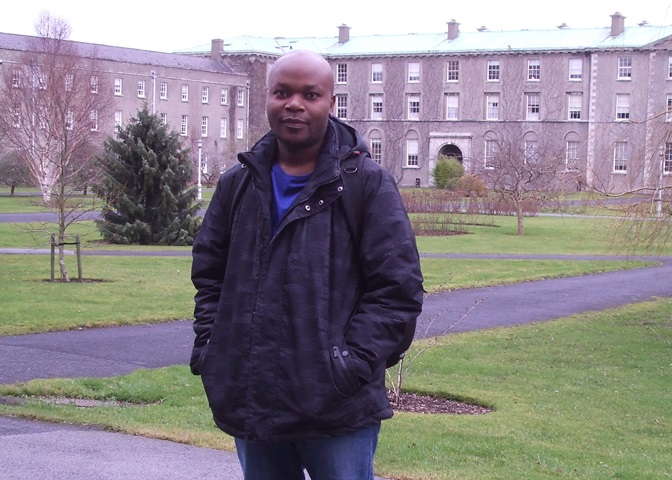Emmanuel Kanchewa
(Malawi)
MA in Economics, Maynooth University
Emmanuel worked with Malawi's Ministry of Agriculture and Food Security when he applied for an Irish Aid Fellowship in 2012. He received a scholarship to study for a Masters in Economics at Maynooth University and with the support of his employer took a study break from his role to pursue the course.

Doing the course has improved my communication skills. Before coming here I would often write something lengthy but the classes have helped me pick out and summarise to get the point across better. That’s one of the key things I’ll be able to take back to my job. Before I wasn’t prioritising in the same way and I’ll be able to be more efficient, both in the course of my assignments and in selecting them when I initiate that. I definitely see that I will do things better.
I work as a Principal Economist with the Ministry of Agriculture and Food Security. As you may imagine from the name of the Ministry, one of the biggest goals is to achieve food security, which has been an issue for the last 25-30 years. A good percentage of the population are still struggling to sustain themselves and so the goal is to make sure that everyone has enough food to see them through the year.
I’m stationed in the Monitoring and Evaluation Division, where we look at the projects and initiatives that have been developed, assess whether the goals are being achieved and document the lessons that can be learnt. We are the ones in the field, formulating project reports.
When I applied for the fellowship, thinking about my day-to-day work, the course in Economics at Maynooth looked like the perfect programme to equip me for my career. And definitely my skills have been enhanced.
Before the course, I was always focused on macro economics and the fiscal dimension, not much about how decisions made by individuals affect things at the aggregate level. In my work, our responsibility is to look at the whole economy, but having an understanding about those things that an individual might go through in the process of decision-making is important to keep in mind when you look at developing a policy or projects. Overall, something might make sense but you risk neglecting the individual’s view of what they might get from it. Looking at utility – how an individual tries to maximise what they get from what they’re doing – that’s important, too. So, the value of adopting a different perspective is one of the key lessons so far.
Also, it has been a good experience interacting with Irish and international students and in the International Student Society. Maynooth is a quiet area but it’s not remote, it’s still accessible to the city so it’s perfect for what I was looking for.
Doing the course has improved my communication skills. Before coming here I would often write something lengthy but the classes have helped me pick out and summarise to get the point across better. That’s one of the key things I’ll be able to take back to my job. Before I wasn’t prioritising in the same way and I’ll be able to be more efficient, both in the course of my assignments and in selecting them when I initiate that. I definitely see that I will do things better.
At a personal level, doing this course has made me want to do more writing and investigation on some of the things I observe. We have to look at other means, apart from farming, to get the economy to grow. For example, tobacco contributes a lot to our economy and our foreign exchange, but what would happen if the government gave similar support to the mining or tourism sectors? Studying econometrics has helped me look at the data in this kind of way and I want to contribute a bit more away from my work, writing papers.
As someone studying Economics, I want to see the indicators for my country improve. Improving GDP per capita doesn’t necessarily translate into the lives of people improving, so if we’re going to talk about growth I’d like to see the number of Malawians with tertiary education being much, much higher, people living longer, food security no longer being a concern. These are the basics - and they have to be at the highest level.